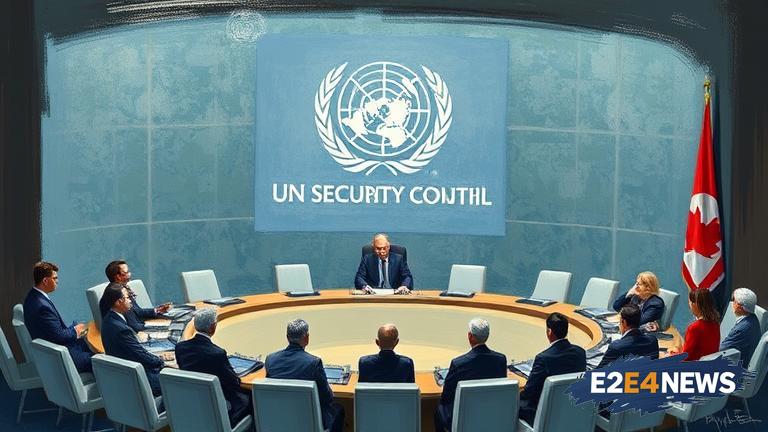The United Nations Security Council has been a cornerstone of international diplomacy and conflict resolution since its inception. As the world’s premier international organization, the UN has played a crucial role in maintaining global peace and security. However, the Council’s effectiveness has been hindered by ongoing conflicts, emerging challenges, and internal divisions. In recent years, the Council has struggled to address pressing issues such as climate change, pandemics, and cybersecurity threats. Despite these challenges, the Council has made significant progress in areas such as counter-terrorism, non-proliferation, and peacekeeping. The 2025 agenda is marked by anticipation and uncertainty, with ongoing conflicts in Ukraine, Syria, and Yemen requiring attention and action. The Council must also contend with emerging challenges such as the rise of China, the growing threat of terrorism, and the increasing importance of cybersecurity. Furthermore, the Council’s internal dynamics are likely to be shaped by the ongoing reform process, which aims to increase the representation and participation of developing countries. The African continent is likely to be a major focus of the Council’s attention, with ongoing conflicts in the Democratic Republic of Congo, South Sudan, and Somalia requiring sustained engagement. The Council must also address the root causes of conflict, including poverty, inequality, and lack of access to education and healthcare. In addition, the Council must prioritize the protection of civilians, particularly women and children, who are often the most vulnerable to the effects of conflict. The use of sanctions and other coercive measures must be carefully considered, with a view to minimizing harm to innocent civilians. The Council’s working methods must also be adapted to respond to emerging challenges, including the use of new technologies such as artificial intelligence and social media. The role of regional organizations, such as the African Union and the European Union, will be critical in supporting the Council’s efforts to maintain peace and security. The Council must also engage with civil society and other stakeholders to ensure that its decisions are informed by a diverse range of perspectives. In conclusion, the UN Security Council’s 2025 agenda is marked by anticipation and uncertainty, with ongoing conflicts and emerging challenges requiring attention and action. The Council must be adaptable, responsive, and inclusive in its approach, prioritizing the protection of civilians and addressing the root causes of conflict. By working together, the international community can build a more peaceful and secure world for all. The Council’s success will depend on its ability to navigate complex geopolitical dynamics, build consensus among its members, and respond effectively to emerging challenges. The next year will be critical in shaping the Council’s future, with ongoing conflicts and emerging challenges requiring sustained attention and action. The international community must remain vigilant and committed to the principles of the UN Charter, including the protection of sovereignty, territorial integrity, and human rights. The Council’s decisions must be guided by a commitment to justice, equality, and human dignity, with a view to building a more peaceful and secure world for all. The 2025 agenda is an opportunity for the Council to demonstrate its relevance and effectiveness, and to build a more just and peaceful world for future generations.
